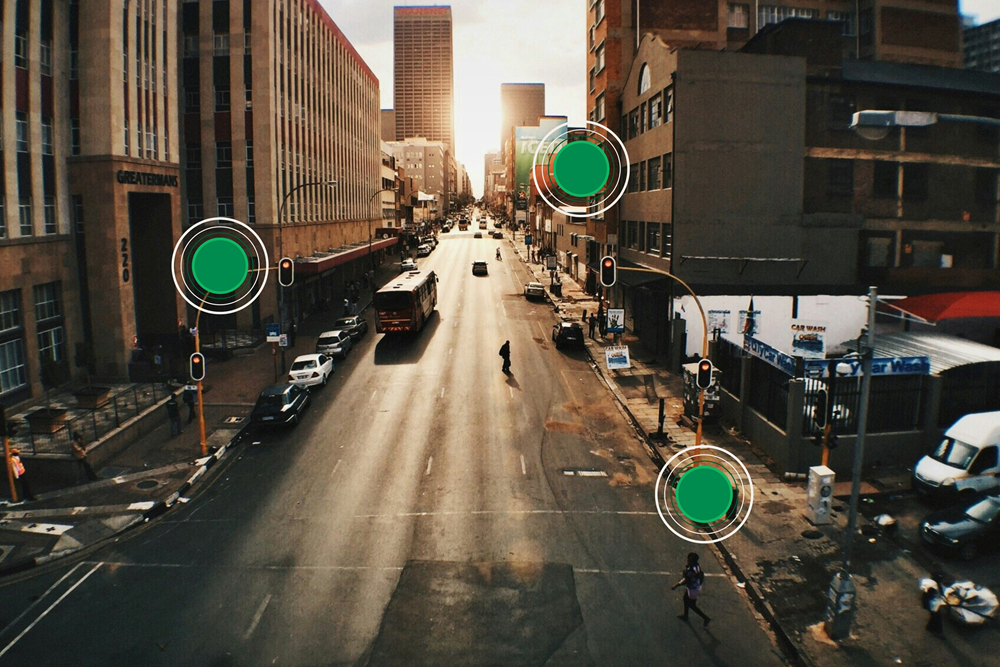
Photo credit: Keenan Constance on Unsplash
The Principles of Defensive Driving and Techniques to Adopt
Road safety has become more important than ever, which makes understanding and practising defensive driving vital for every driver. With this in mind, we decided to take a closer look at the principles of defensive driving and techniques you should consider adopting. With a focus on basic principles and essential defensive driving techniques, we hope that this article will serve as an invaluable resource for navigating South Africa's diverse and challenging roads. For a thorough assessment of your vehicle's condition and safety, visit DEKRA for a Condition Report. Click/tap here to find your closest branch.
What is defensive driving?
It is a proactive approach to driving, where you anticipate potential hazards and make well-informed, deliberate decisions to avoid accidents. This method of driving doesn't just ensure your safety, but also that of other road users.
The Basic Principles of Defensive Driving
1. Awareness
Just as a skilled navigator reads the changing landscapes on a journey through the Karoo, a defensive driver stays alert to all possible road scenarios. This means constantly scanning the road, checking mirrors, and being mindful of the behaviours of other drivers, pedestrians, and potential roadside hazards.
2. Control
Maintain a steady speed, adhere to traffic rules, and use signals appropriately. Speed control is crucial, especially considering the diverse driving environments in South Africa, from the speedy highways to winding rural roads.
3. Planning
Think of it as carefully plotting a route for a road trip along the Garden Route. Always plan your manoeuvres in advance, giving yourself and others ample time to react. This includes anticipating the actions of other drivers, which is particularly vital on busy routes like the N1 or N3, where sudden lane changes and erratic driving are common.
4. Patience and Courtesy
Road rage benefits no one. While on the road, it's always a good idea to show the same kind of patience and courtesy you would in a busy supermarket queue. Respect other drivers' space, avoid aggressive driving behaviours, and be forgiving of others' mistakes.
5. Adaptability
Just as a hiker adjusts to the changing terrains and climates across the Drakensberg, be ready to adapt your driving to different conditions. Whether it's adjusting for a sudden Highveld thunderstorm or navigating through a misty morning in the Eastern Cape, flexibility in your driving approach can be a lifesaver.
Read: Weather-Related Driving Hazards
6. Continuous Learning
This type of driving is a skill honed over time. Regularly refresh your knowledge and skills to ensure you remain a proficient and safe driver on South Africa's diverse roads.
Defensive Driving Techniques
Every driver should be equipped with a set of defensive driving techniques to ensure their safety and the safety of others on the road. Let's take a look at what you can do.
Stay Alert and Focused: Always pay full attention to the driving task. Avoid distractions such as mobile phones, eating and drinking, or any activity that takes your focus off the road.
Maintain a Safe Following Distance: Keep a safe distance between your vehicle and the one in front of you. This gives you more time to react if the vehicle ahead of you suddenly stops. A good rule of thumb is the "three-second rule", which should be increased in bad weather or poor visibility.
Scan the Road Ahead and Your Surroundings: Constantly scan the road environment, not just the vehicle in front of you. This includes checking your rear-view and side mirrors frequently and looking ahead for potential hazards.
Anticipate and Prepare for Possible Hazards: Try to anticipate potential hazards, such as erratic drivers, pedestrians, and cyclists. Be aware of potential escape routes in case of emergency.
Obey Traffic Laws: Adhere to all traffic signs, signals, and road markings. Observe speed limits and adjust your speed according to road conditions.
Adjust to Weather and Road Conditions: Modify your driving to suit different conditions. Slow down in rain, fog, or on slippery roads, and be extra cautious on unfamiliar or poorly lit roads.
Control Your Speed: Avoid speeding, which will reduce the time you have to react and increase the severity of an accident should it occur.
Yield the Right of Way: When in doubt, or in situations where it's unclear who has the right of way, it's safer to yield.
Avoid Aggressive Drivers and Stay Calm: Don't engage with aggressive drivers. Road rage or impatience can lead to poor decision-making. Stay calm and patient, especially in heavy traffic or challenging driving situations.
Read: Understanding Road Rage and Aggressive Driving
Use Turn Signals: Always use your turn signals well in advance of making a turn or changing lanes to inform other drivers of your intentions.
Be Visible: Use your headlights and brake lights appropriately to ensure other drivers can see you, especially in poor visibility conditions.
Plan Your Journey: Know your route in advance. Anticipating traffic, construction zones, and other factors can help you avoid stressful situations on the road.
Regular Vehicle Maintenance: Ensure your vehicle is well-maintained. A DEKRA Condition Report will be very helpful here. A Condition Report is a comprehensive assessment that evaluates the overall condition and safety of your vehicle, identifying any existing issues or potential concerns. Click/tap here to find out more about the DEKRA Condition Report.
Practise Defensive Driving Techniques Regularly: Incorporate the above-mentioned techniques into your daily driving routine. It might seem like a lot to keep track of, but do them often enough and they will become second nature.

Photo credit: Ernest Brillo on Unsplash
Embracing the principles of and regularly practising defensive driving techniques are not just recommendations but necessities for ensuring safety on the road. Whether you're navigating the bustling streets of a city or travelling over the expansive landscapes of South Africa, these skills are invaluable for every driver. Remember, the condition of your vehicle plays a crucial role in defensive driving. A well-maintained vehicle responds better in critical situations, making it essential to stay on top of vehicle maintenance and safety checks. For a comprehensive evaluation of your vehicle's condition, don't hesitate to visit DEKRA for a Condition Report. This step is integral in ensuring that you are fully equipped to drive defensively and safely. Click/tap here to learn more about the DEKRA Condition Report and find your closest branch.